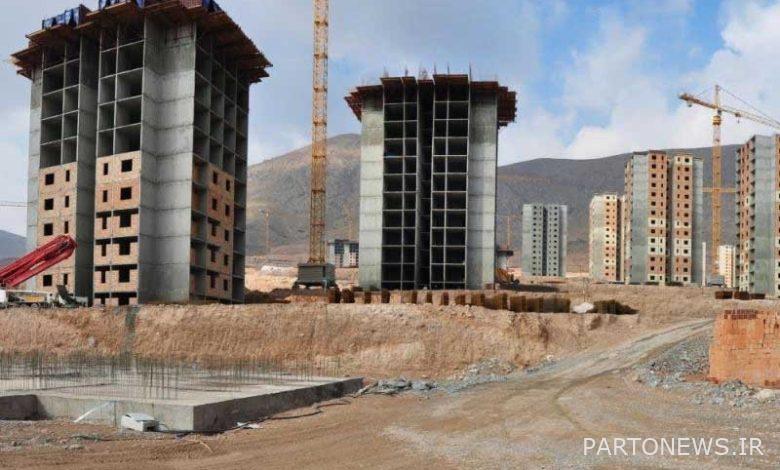Decrease in housing construction in Tehran and increase in statistics in the north / 2 What do the new signals tell the market?

According to Trade News, official statistics have recently given two signals to the market Housing Have sent. First, the number of building permits has been rising in recent months. The Iranian newspaper recently wrote in this regard: The total number of building permits issued from 1992 to 1999 is equal to one million and 150 thousand units, while this statistic is equivalent to one million permits for only 6 months of the thirteenth government.
On the other hand, while Tehran’s share of the country’s building permits decreased to 5% in 1400, the share of northern cities in the total number of permits issued this year increased to 8% (the world of economy).
What message do these statistics have for the housing market?
Turning housing into a capital good
Mansour Gheibi, a housing market expert, told Tejaratnews about the increase in the number of building permits in the north of the country: “These conditions show that the housing market has shifted to buying with the aim of investing instead of consuming.”
He adds: “If the plans and policies of the policy-making system were based on consumer protection, such conditions should not have been formed.”
This expert continues: Currently, the highest consumer demand in the housing market is in Tehran, and it is not natural to reduce the issuance of construction permits in this city.
Invest with the goal of making more profit
“Investors go to cities and regions to define their construction projects, which increases the likelihood of a return on investment and profit,” says Gheibi. It seems that housing market activists estimate that the probability of maintaining capital in the north of the country is higher than in Tehran.
He adds: “In fact, housing projects do not seem to be defined on the basis of market consumption needs, but on the basis of making more profit.”
Government support schemes have not been effective
The expert explains: To compensate for this situation, the government has started to build supportive housing. However, policy-making and executive bodies have not been able to define effective protection and regulatory policies in the field of housing.
He added: “The government should have a role of excellent oversight of this sector and should not enter into executive and contractual actions, as we have been witnessing for years.”
The housing market expert emphasizes: “Every time the government has taken on the role of implementation or intervened by claiming to address challenges and protect consumers, it has not yielded positive results.” This situation can be seen in the Mehr housing project.
Gheibi continues: The jihadist actions that have been carried out in the field of housing in the past years have usually not paid enough attention to the necessary infrastructure and the final quality of the production units. As a result, they have not solved any problem in this market.
Increasing the housing construction license is not enough
He also says about the increase in the issuance of building permits: the issue is not only the issuance of building permits and the production of housing. There must be sufficient demand in the market.
“The market is in a slump right now,” explains the expert. Increasing manufacturing licenses does not necessarily create a balance between supply and demand. The product of many of these licenses is likely to be added to existing semi-finished projects or vacant buildings.
The need to define housing projects based on market needs
Gheibi emphasizes: Of course, the issue of housing supply is very important. In fact, it is not possible to completely oppose the increase in the issuance of construction licenses, but this issue requires careful planning. Demand must also be considered. On the other hand, projects should be defined based on market needs.
He adds: “The situation in recent years has been such that the private sector designs and implements projects in cities that are more profitable.” On the other hand, the government is also trying to implement support projects. The result of this division of labor has not been positive so far and has fueled inflation in the housing market.
The possibility of increasing the overdue receivables of banks
“Defining the supply sector, regardless of the market consumption needs, can lead to an increase in banks’ arrears if it is accompanied by obtaining bank facilities to complete projects,” he said.
Gheibi emphasizes: Of course, the private sector is likely to benefit less from banking facilities compared to government and support projects. From the outset, in such projects, the government defines a portfolio of support for applicants, including banking facilities.
“If the support projects are not properly designed and implemented, the burden of unpaid facilities will probably be transferred to the banking network,” he said.
Read the latest housing news on the Tejarat News Housing Market page.

